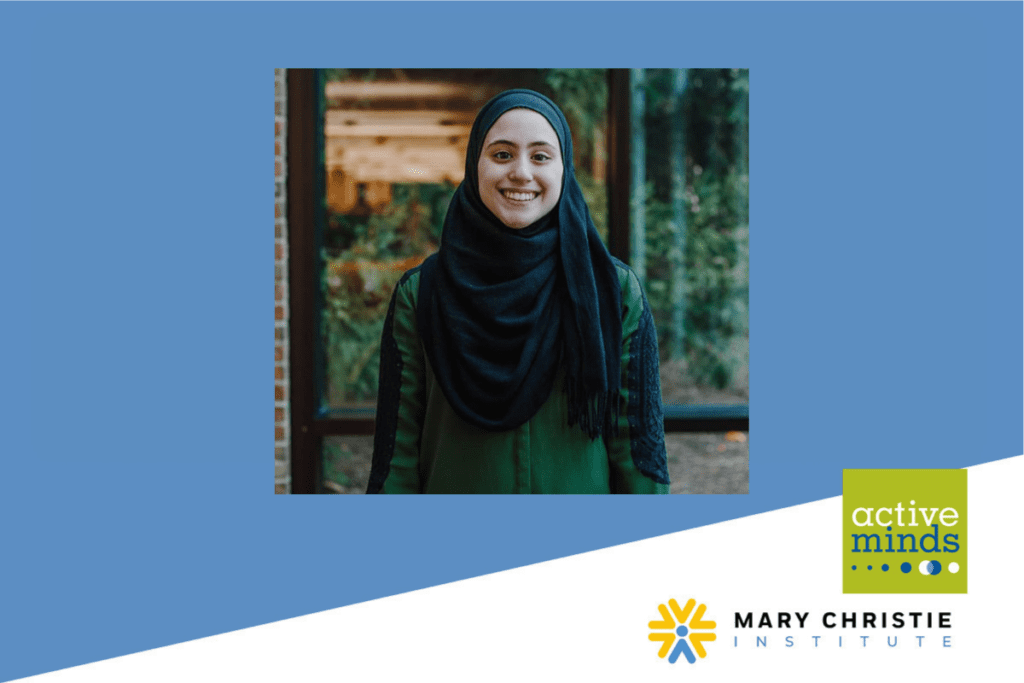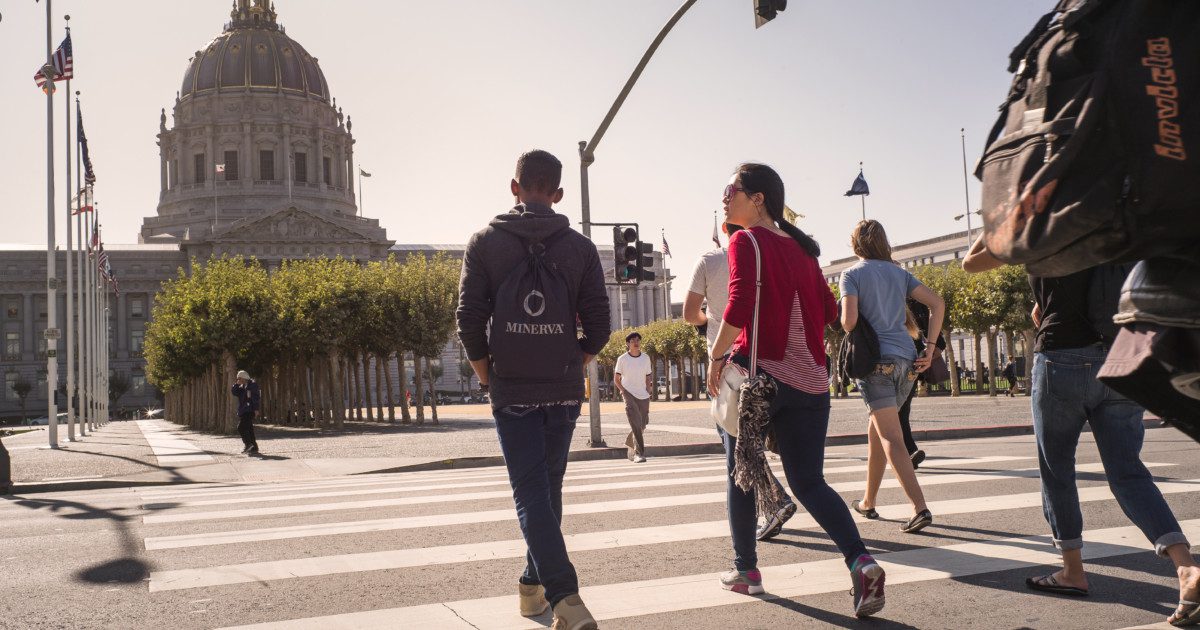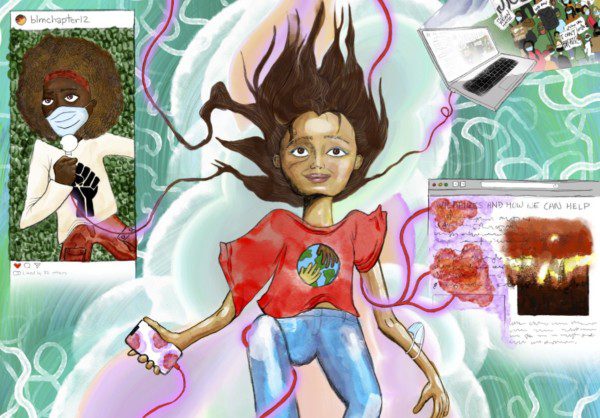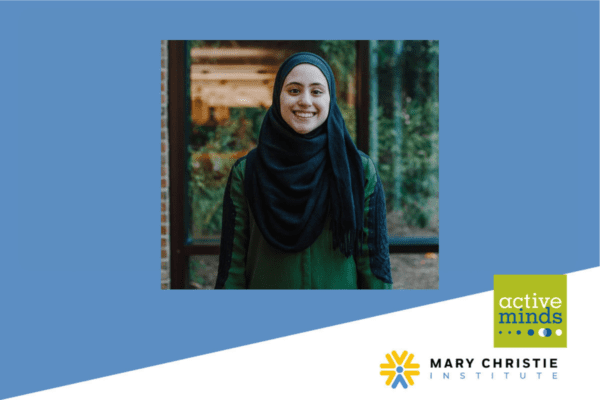For many students, college is a place of curiosity, exploration, and growth. Sometimes, this entails questioning one’s own faith and religion, becoming closer to it, or even branching away from it.
Growing up with a conservative religious family in Dhaka, Bangladesh, Nuzhat T. saw her parents do their best to raise five children, where her mother was a stay-at-home parent and her father was a full-time worker. In a city where most of the population was Muslim, Nuzhat was surrounded by Islamic traditions, such as hearing the adhan (call to prayer) played over the loud speakers five times a day, and her family spending Fridays, the holy day for Muslims, in worship to God. She even remembers the role that important occasions, such as Ramadan, the holy month of fasting, has played in her life. “The festive environment that revolved around the Islamic year created an interest in me to pursue love for Islam and the teachings,” said Nuzhat.
At the same time, however, Nuzhat felt like something was missing. “Despite this interest, I believe there was always a gap that my parents did not know how to fill: love for God,” stated Nuzhat. As a child, Nuzhat had a hard time understanding why she was reading the Quran or praying the obligatory prayers.
This missing piece followed Nuzhat when she migrated to the United States in 2017.
“When I first entered college, I had lost my connection with Allah (God),” said Nuzhat. As a freshman who was working two part-time jobs and attending class full-time, Nuzhat’s mental health plummeted. She adopted many unhealthy habits, and was struggling to eat, sleep, and complete her Islamic prayers. As an introvert, she had little to no social support. Throughout the moments of distress and loneliness, Nuzhat reconnected to Islam, her prayers providing her with a sense of resiliency and familiarity that motivated her to keep going in life.
When the pandemic hit, Nuzhat’s life shifted. It was her sophomore year, and she left her weekend job. The time in solitude allowed Nuzhat to connect deeper with her religion in a way that she had not before. It was also a time when she started coming out of her shell more. “I found a friend in my physics class who happened to be in MSA (Muslim Students’ Association). In Ramadan, during the pandemic, my friend hosted a Zoom session talking about Surah Al-Mulk [in the Quran],” Nuzhat described. Nuzhat attended the session with curiosity, and her friend inspired her to engage deeper with the text, as a non-Arabic speaker, rather than just reading the letters. “Since then, I have indulged in reading the meanings, the story behind each chapter, and taking it into my heart instead of reading like a robot.”
“After I stopped looking so hard for the community to come to, eventually, that community came to me.”
Zainab Almosawi had a different experience in finding community, as she grew up in Dearborn, Michigan, the same city where she decided to attend college. Growing up with a very religious Iraqi family, Zainab attended a private Islamic school from 1st to 12th grade. The formal knowledge that she gained growing up impacted her understanding and practice of her religion.“I don’t remember a time in my life where religion was not important,” Zainab said. She describes being surrounded by a community of Muslims, both at home and at school.
As a non-traditional college student who left university from the ages of 21-27, Zainab reflected on her experiences as a 19-year-old and her life now as a 29-year-old, married with two kids. “Having religion constantly be my top priority at home and school played a major role in prioritizing religion when I started college, in a non-Islamic school for the first time,” Zainab recalled. “Hijab, praying on time, reciting [Islamic] supplications before exams, and representing Islam in the best way possible, were my top priorities.”
Her chosen community also reflected these priorities. “Initially, I felt comfortable with other girls that looked like me and had the same priorities,” Zainab remembered. “But, after my first semester, that changed, and I had friends from a variety of different ethnic and religious backgrounds. It helped me understand people better, and also encouraged others to understand Muslims better.” As much as college became a tool to connect with others of similar backgrounds, Zainab realized that it was a powerful way to connect with others who were different from her. “Learning about other religions and beliefs taught me that many of us share the same goals and want to serve humanity in the best way possible.” This realization helped Zainab be more open to friends of different religions, learn from them, and in return, made her “become a better Muslim,” as she describes.
With this expansion in community, Zainab felt that it was a personal responsibility to break stereotypes about Muslim women. “I made sure to do well in all my classes to change the perception that Muslim women were not educated,” she said. Her upbringing, nonetheless, reflected the confidence that she deeply held about her values and her identity. “The more confident you are with your beliefs, the more comfortable and courageous you feel representing your religion,” she said. Zainab hopes to share the same values with her children.
Sammy Caruso, a current sophomore and campus organizer, has also allowed college to expand his perspective of religion and his chosen community. Growing up in Dayton, Ohio, and in a family of Reform Jews, Sammy spent much time in Jewish spaces. “Every Sunday since Kindergarten, I would attend Jewish Sunday school and attend Temple as a family for the major Jewish holidays such as Rosh Hashana, Yom Kippur, and Purim,” he said. He also remembered attending a Jewish summer camp for eight years during childhood, having a bar mitzvah at the age of 13, and being involved in a Jewish youth group in high school.
Entering college, Sammy was worried about what some people thought of Jews. “I was concerned that some people might have only met one or two Jews, that may have been Orthodox and have a completely different idea of what Jews are like, or meeting people that have never met a Jew so they use stereotypes when confronting one,” he said. He mentioned that finding a community at UM-Dearborn was initially a difficult process for him, since there were no Jewish clubs. He felt responsible to carry his “Jewishness” as a representative of his community.
Despite this struggle, he didn’t lose hope. “After I stopped looking so hard for the community to come to, eventually, that community came to me,” Sammy said, noting that he now shares a groupchat with the other Jewish students on campus.
Sammy shared similar reflections as Zainab, as they have learned from others who are different from them, while noticing their collective shared values. “My community consists of all religions, not just Abrahamic,” said Sammy. “Although it is nice to be with other Jews on the holidays to embrace traditions, I also want to leave the door open for anyone to be a part of what makes the Jewish tradition its own.” Sammy explained that in college, he found himself simultaneously moving towards and away from religion. He considers himself antitheist, but remains culturally Jewish, and finds the beauty in shared values among all humans.
The more Sammy learned about religion, the more he found similarities with people of all different faiths. College has taught me that what is most important in finding your community is finding those who share your ethics and morals,” said Sammy. For him, it was not simply Judaism that cultivated these values, but “being a good human being for the sake of being a good person.”
For Elizabeth O’Hotzke, finding a university that shared her religious identity was important to her. She grew up in a small, rural town which was home to eight churches of different Christian denominations. “I would say my prayers every day and make a point to go to Mass, even when we were out of town or had busy weekends.” she said.
As a Catholic Christian who attended public school her whole life, she wanted to be immersed in, and grow with, a faith community who shared her religion. But Elizabeth found herself at UM-Dearborn, where its diversity contrasted from the homogeneity she thought she wanted. While she wholeheartedly embraced her friends from various cultural and religious backgrounds, she still searched for a group that shared her faith.
Similar to Zainab and Sammy, Elizabeth also struggled finding community and felt the need to challenge stereotypes. “In different groups, religion was a tough subject,” Elizabeth reflected. “I remember discussions where we would talk to our Muslim or Hindu friends about their faiths, but I felt intimidated by a few people who had their own, unchanging opinions about mine…I remember sitting in intimidated silence when someone who said that they used to be Christian said right in my face, ‘Christians are such hypocrites,’ as I found myself clutching onto the cross around my neck.”
From this memory, Elizabeth thought that no one at her university would share or even want to hear about her faith because they may have already formed their opinions about Christians. But, this false belief was broken relatively quickly as she began to find her community.
Elizabeth met the Catholic group on campus and saw them every week. “The people that I met are still dear friends, and I wouldn’t know until later what wonderful seeds God was planting during that time,” Elizabeth remarked. When the pandemic began, Elizabeth still continued to meet with her Catholic small group weekly and felt thankful for the value and presence they added to her life.
To help other students find community in college, Elizabeth recommends that college students initiate these connections and also realize that others may need an invitation. “Some students know that they want a faith community, and they can initiate that search by looking for groups on campus or talking to their peers. Other students might need that [formal] invitation – whether from an organization or a friend,” she said. She believes it can be important for religious groups to make their presence known and invite students into their spaces, where students like herself come to learn that they are valued and appreciated.
Elizabeth, who is set to graduate from the Encounter’s School of Ministry this spring, understands how difficult it may be for students to embrace their religious identities. “If someone’s religion is a large part of their identity, they should be welcomed to share that part of their lives…This openness to discussing religions would not only help break religious stereotypes and make us all more inclusive, but it could help students find their community and embrace their own religious identity.”
For Nuzhat, Zainab, Sammy, and Elizabeth, their faiths helped them find community and reconnect with their values and beliefs over the course of college. As difficult as it was at times, all four students described challenging stereotypes when it came to their religions and learned how to find support along the way.




